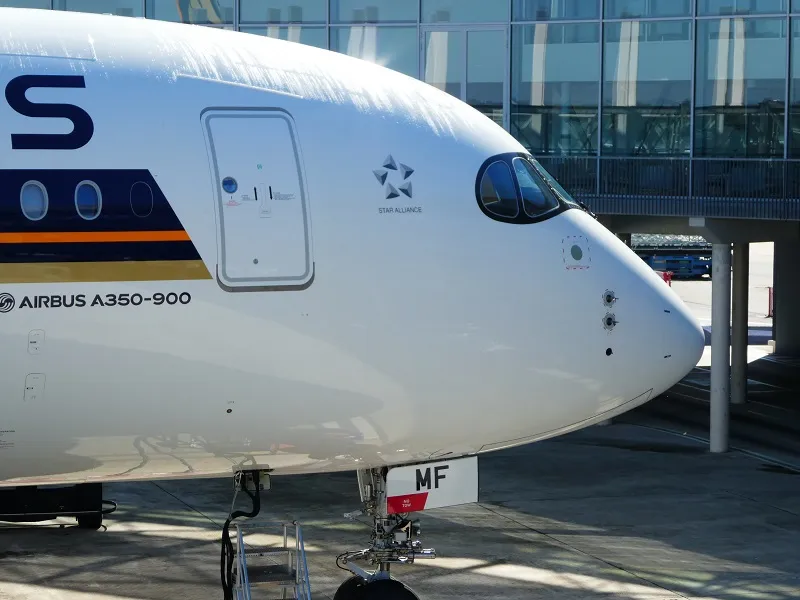
Singapore Airlines tests biofuel from used cooking oil
May 03, 2017

Singapore Airlines is actively exploring sustainable aviation fuel options by testing biofuel derived from used cooking oil. This initiative aims to reduce the airline's carbon footprint and enhance environmental sustainability in aviation. The trials involve blending biofuel with conventional jet fuel to assess its performance and impact on emissions during flights. By utilizing waste cooking oil, Singapore Airlines not only contributes to renewable energy sources but also promotes a circular economy. This move reflects the airline's commitment to innovation and sustainability as it strives to meet global climate goals and enhance its operational efficiency in an eco-friendly manner.
Singapore Airlines is making significant strides in sustainable aviation by testing biofuel derived from used cooking oil. This initiative is part of a broader commitment to reduce carbon emissions and promote environmentally friendly practices within the aviation industry. With rising awareness about climate change and the need for greener alternatives, the airline industry is under pressure to innovate and adopt sustainable solutions. Singapore Airlines is at the forefront of this movement, showcasing its dedication to sustainability through this biofuel initiative.
The Importance of Sustainable Aviation Fuel
Sustainable aviation fuel (SAF) is essential for reducing the carbon footprint of air travel. Traditional jet fuels are derived from fossil fuels, which contribute significantly to greenhouse gas emissions. In contrast, biofuels like those produced from used cooking oil can significantly lower these emissions. Studies show that using SAF can reduce lifecycle greenhouse gas emissions by up to 80% compared to conventional jet fuel.
Here’s a quick comparison of emissions:
| Fuel Type | Lifecycle Greenhouse Gas Emissions (gCO2e/km) |
|---|---|
| Conventional Jet Fuel | 100 |
| Biofuel from Used Cooking Oil | 20 |
How Singapore Airlines is Implementing Biofuel
Singapore Airlines has partnered with various stakeholders to test and implement biofuel made from used cooking oil. This collaboration involves local food establishments that provide the used oil, which is then processed and converted into biofuel. The airline recently conducted a series of test flights using this biofuel, which showcased its feasibility and effectiveness in real-world operations.
Key Benefits of Using Biofuel in Aviation
The shift towards biofuel offers numerous advantages for airlines, including:
- Reduction in Carbon Emissions: The primary benefit of biofuels is their significant reduction in greenhouse gas emissions, helping airlines meet their sustainability goals.
- Energy Security: Utilizing biofuels diversifies fuel sources and reduces dependence on fossil fuels.
- Waste Reduction: By repurposing used cooking oil, airlines contribute to a circular economy, minimizing waste.
Challenges in Biofuel Adoption
Despite the clear benefits, there are challenges associated with the widespread adoption of biofuels in aviation. These include:
- Production Costs: The current production process for biofuels can be expensive, making them less competitive compared to traditional jet fuels.
- Infrastructure Development: Significant investments are needed to develop the infrastructure required for biofuel distribution and storage.
- Regulatory Hurdles: Airlines must navigate various regulations and certifications to utilize biofuels safely.
The Future of Biofuels in Aviation
Singapore Airlines’ efforts to test biofuel from used cooking oil are a promising step towards a more sustainable future in aviation. As more airlines recognize the importance of sustainability, the demand for biofuels is likely to increase. With advancements in technology and greater investment in biofuel research, the aviation industry can work towards achieving significant emissions reductions.
Global Trends in Sustainable Aviation
Many airlines worldwide are also exploring sustainable aviation fuels. Here’s a snapshot of global trends in this space:
| Airline | Biofuel Source | Initiative Status |
|---|---|---|
| Singapore Airlines | Used Cooking Oil | Testing Phase |
| United Airlines | Vegetable Oils | Commercial Flights |
| Delta Air Lines | Animal Fats | Partnership with Producers |
Conclusion
In conclusion, Singapore Airlines’ initiative to test biofuel derived from used cooking oil is a crucial step toward sustainable aviation. This innovative approach not only contributes to reducing carbon emissions but also promotes a circular economy by repurposing waste. As the airline industry faces increasing pressure to adopt greener practices, initiatives like these set a positive precedent for others to follow. With continued investment and collaboration, the future of aviation can be both sustainable and efficient.
Related Articles

Explore Thailand: The Best Islands to Visit for Paradise, Adventure, and Relaxation

The Ultimate Guide to the Best Islands in Thailand for Your Next Getaway

Do babies need passports? How to get a passport for a newborn

How to get a U.S. passport fast: here’s how to expedite the process

What is Mobile Passport Control: 5 reasons why you should use it

SENTRI vs. Global Entry: A detailed guide

Do you need a passport to go to the Bahamas? Let’s find out

Do you need a passport to go to Mexico? A detailed guide

Do you need a passport to go to Canada? We got the answer

Do You Need a Passport for a Cruise: An Essential Travel Guide

Booster Seat Requirements: All the Rules to Follow in Your Rental Car

What Are the World’s Most Powerful Passports, and How Does Yours Rank?

How to Take a Passport Photo at Home: A Helpful Guide

You've got to have heart! Southwest's new livery

Your opinion: Should water be free on low cost carriers?

Young women bolder than guys as solo travellers
